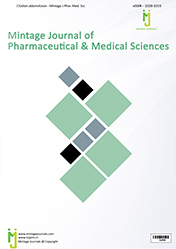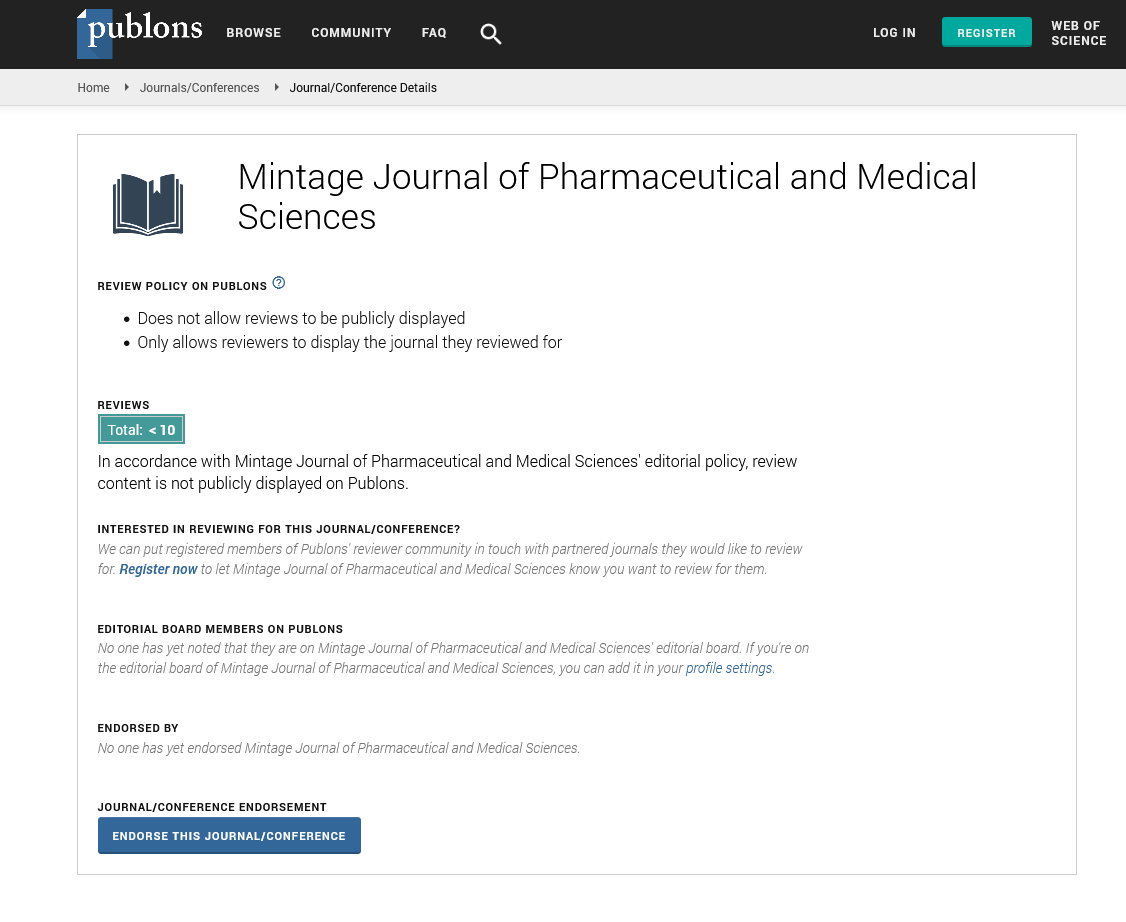Nature's Pharmacy: Herbal Interventions in Rheumatoid Arthritis Treatment
Opinion - (2024) Volume 13, Issue 1
Introduction
Rheumatoid Arthritis (RA) is a chronic inflammatory disorder that primarily affects joints, leading to pain, swelling, and eventual joint damage. While conventional medical treatments, including Nonsteroidal Anti-Inflammatory Drugs (NSAIDs), corticosteroids, and Disease Modifying Antirheumatic Drugs (DMARDs), play a crucial role in managing RA, there is a growing interest in herbal interventions as complementary or alternative therapies. This comprehensive review explores the potential of various herbal remedies in the treatment of RA, examining their efficacy, mechanisms of action, and safety profiles.
Description
One of the most studied herbal interventions for RA is turmeric, specifically its active compound curcumin. Curcumin is known for its potent antiinflammatory and antioxidant properties. Studies have demonstrated that curcumin inhibits the activity of pro-inflammatory enzymes and cytokines, such as cyclooxygenase-2 (COX-2) and tumor necrosis factor-alpha (TNF-α). Clinical trials have shown that curcumin supplementation can significantly reduce joint pain and swelling in RA patients, often with fewer side effects compared to conventional medications. Its ability to modulate the immune response and reduce oxidative stress makes it a promising adjunct in RA therapy. The resin of Boswellia contains boswellic acids, which have been found to inhibit 5-lipoxygenase, an enzyme involved in the inflammatory pathway. Clinical studies have reported that Boswellia extracts can improve joint function and reduce symptoms in RA patients. Its anti-inflammatory effects, combined with a favorable safety profile, suggest that Boswellia could be a valuable natural therapy for RA. Ginger is another herb with significant potential in RA treatment. Ginger contains bioactive compounds like gingerols and shogaols, which exhibit anti-inflammatory and analgesic properties. Research indicates that ginger can reduce the production of inflammatory mediators and improve joint mobility. Some studies have shown that ginger supplements can alleviate pain and decrease the need for conventional pain relievers in RA patients. The anti-inflammatory action of ginger, coupled with its ability to enhance circulation and reduce muscle stiffness, makes it an attractive herbal option for RA management. EGCG has been shown to suppress the expression of inflammatory cytokines and inhibit the activity of inflammatory cells. Animal studies and preliminary human trials suggest that green tea extract can reduce the severity of arthritis symptoms and protect against joint damage. The antioxidant properties of green tea also contribute to its potential benefits in reducing systemic inflammation in RA. Devil’s claw, a herb native to southern Africa, has traditionally been used for its antiinflammatory and analgesic effects. Harpagoside, the active component of devil’s claw, has been found to inhibit inflammatory pathways, reducing pain and improving joint function. Clinical trials have demonstrated that devil’s claw can be effective in managing pain and inflammation in arthritis, making it a valuable addition to the herbal arsenal against RA.
In addition to these herbs, there is growing interest in the use of other natural compounds such as cat’s claw, willow bark, and evening primrose oil. Cat’s claw has immunomodulatory properties, willow bark contains salicin (a precursor of aspirin), and evening primrose oil is rich in gamma-linolenic acid (GLA), an omega-6 fatty acid with anti-inflammatory effects. Each of these has shown potential in reducing RA symptoms, although more rigorous clinical trials are needed to confirm their efficacy and safety. While the potential benefits of herbal interventions in RA treatment are promising, it is essential to approach their use with caution. Herbal supplements can interact with conventional medications and may cause side effects. Therefore, it is crucial for patients to consult with healthcare providers before incorporating herbal remedies into their treatment regimen.
Conclusion
Nature’s pharmacy offers a variety of herbal interventions that could provide relief for RA sufferers. Turmeric, Boswellia, ginger, green tea, and devil’s claw are among the most promising herbs, each with unique anti-inflammatory properties that can complement conventional RA treatments. As research continues to unveil the therapeutic potential of these natural remedies, they may play an increasingly important role in holistic and integrative approaches to managing rheumatoid arthritis.
Author Info
Ben Gargano*Received: 28-Feb-2024, Manuscript No. mjpms-24-136520; , Pre QC No. mjpms-24-136520 (PQ); Editor assigned: 01-Mar-2024, Pre QC No. mjpms-24-136520 (PQ); Reviewed: 15-Mar-2024, QC No. mjpms-24-136520; Revised: 20-Mar-2024, Manuscript No. mjpms-24-136520 (R); Published: 27-Mar-2024, DOI: 10.4303/2320-3315/236003
Copyright: This is an open access article distributed under the terms of the Creative Commons Attribution License, which permits unrestricted use, distribution, and reproduction in any medium, provided the original work is properly cited.

ISSN: 2320-3315
ICV :81.58

